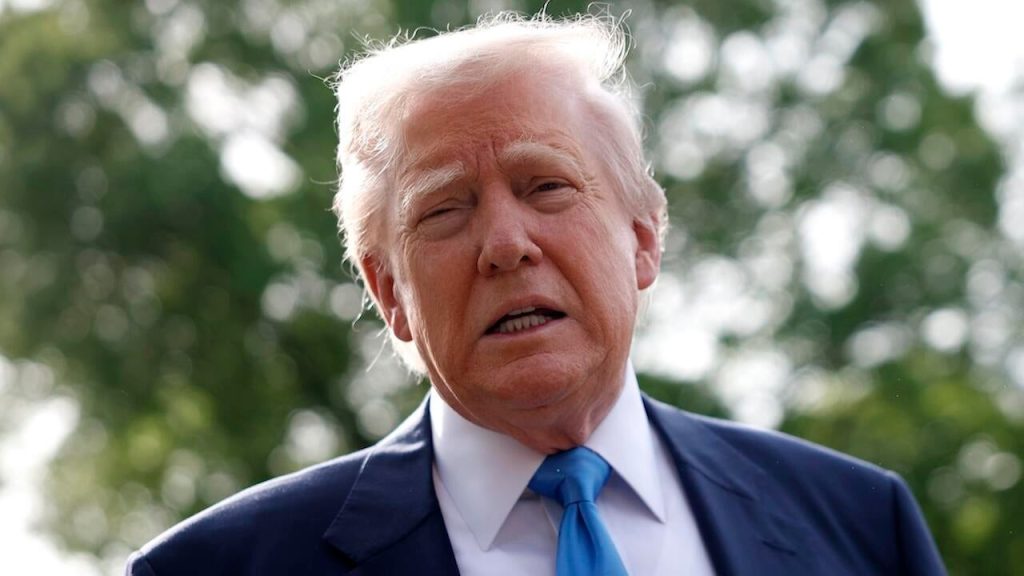President Donald Trump said he “could” call Salvadoran President Nayib Bukele to help return Kilmar Abrego Garcia to the United States, but stopped short of committing to action, citing legal advice and casting doubt on Abrego Garcia’s character.
In an interview aired Tuesday with ABC News’ Terry Moran, Mr. Trump acknowledged that he had the means to contact Bukele “there’s a phone on this desk,” Moran noted but suggested he was reluctant to intervene.
“I could,” Mr. Trump said. “If he were the gentleman that you say he is, I would do that, but he’s not.”
What led to Trump’s comment?
Trump’s comments come amid mounting legal pressure on his administration to facilitate the return of Abrego Garcia, a Salvadoran national who was deported last month despite a 2019 court ruling explicitly barring his removal. The Supreme Court earlier this month partially upheld an order from U.S. District Judge Paula Xinis directing the government to “facilitate” Abrego Garcia’s return.
The administration has argued that returning Abrego Garcia is a matter for El Salvador’s government. However, President Bukele has stated he does not “have the power” to release Abrego Garcia, who was imprisoned at El Salvador’s infamous Terrorism Confinement Center following his U.S. deportation.
The situation has drawn significant scrutiny, particularly given that Abrego Garcia had been granted “withholding of removal” protections in 2019 due to credible fears of gang persecution in El Salvador. His removal was described by U.S. officials as an “administrative error.”
Despite these court protections, Mr. Trump maintained a hard line in the interview, labeling Abrego Garcia an “MS-13 gang member, a tough cookie who “beat the hell out of his wife”, allegations his legal team vehemently denies. Abrego Garcia has never been charged with gang-related crimes, and while his wife obtained a temporary protective order in 2021, she later told reporters the situation did not escalate and she withdrew from pursuing the case.
During a separate interview last week with Time magazine, Trump similarly stated he had not positively asked Bukele for Abrego Garcia’s release, attributing his inaction to advice from his attorneys.
“I haven’t asked him positively, but he said he wouldn’t [release him],” Trump said. “They get whatever my lawyers say.”
The broader context of Abrego Garcia’s deportation paints a starker picture. His removal was part of a sweeping Trump-era effort to deport alleged gang members under the Alien Enemies Act of 1798, an obscure law traditionally reserved for wartime enemies. While the administration has defended its use of the law as necessary for national security, courts and advocates have raised serious concerns about a lack of due process and judicial oversight.
The Supreme Court recently ruled that individuals deported under the Alien Enemies Act must be granted an opportunity for judicial review, affirming that even during times of crisis, constitutional protections must not be discarded.
Asked by ABC News whether migrants should receive due process before deportation, Mr. Trump responded, “We follow the legal process,” but added, “If people come into our country illegally, there’s a different standard.”
“They get a process where we have to get them out,” he said. “They get whatever my lawyers say.”
As Judge Xinis presses for clarity on the administration’s efforts to secure Abrego Garcia’s return, the future remains uncertain, a transnational tug of war playing out across courtrooms, press rooms, and presidential desks.
For now, the phone on the President’s desk remains silent.

